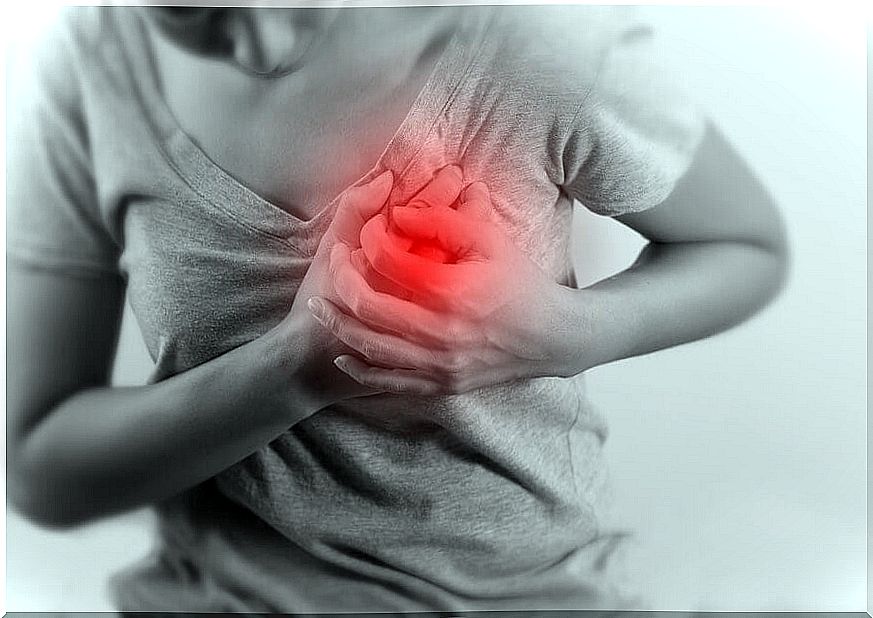Loss Of Consciousness Why Can It Happen?
Loss of consciousness is also called “loss of consciousness.” These are equivalent expressions in medicine and define the same clinical picture.
Both definitions are valid because losing consciousness is a “disconnection” of consciousness with reality. In fact, the person who suffers from it loses the perception of what is around him and the perception of himself.
Next, we inform you of the factors that intervene in its development to detect them when going to the doctor.
Classification in loss of consciousness
The underlying mechanism that is common to all causes of loss of consciousness is lack of adequate cerebral blood supply. This means that not enough blood reaches the brain and, then, there is this “disconnection” with reality.
A special situation is syncope (known as “fainting”), since the person recovers in a short time. Spontaneous recovery happens because when falling fainted, the horizontal body favors the arrival of blood to the brain. Strictly speaking, a syncope is a temporary loss of consciousness.
The picture is relatively frequent. In fact, it is estimated that in on-call consultations 3% corresponds to syncope. Along these lines, as its causes can be low-risk to dangerous, we divide them into non-cardiac and cardiac to explain them to you.
Non-cardiac causes of loss of consciousness
As indicated by the Spanish Society of Internal Medicine (SEMI), most syncope occurs for benign reasons as you can see below. However, it is important to see a doctor anyway to get an accurate diagnosis.
Vasovagal syncope
An article published by the Costa Rican Medical Acta emphasizes that vasovagal syncope is the most frequent cause of all. The vasovagal reflex is an involuntary response of the nervous system to a certain stimulus, which leads to the dilation of the vessels, the drop in blood pressure and the redistribution of blood to the lower limbs.
Sometimes it is caused by a stressful situation. However, severe body aches, dehydration and extreme temperatures also play a role.
Posture changes
When you change quickly from a horizontal to a vertical position (without giving the body time to activate the compensating mechanisms), hypotension occurs.
That is, blood pressure drops and blood (as in vasovagal syncope) is distributed to the lower limbs. In this way, it does not flow correctly to the brain.
Migraines in unconsciousness
As the following study on migraine carried out in 2005 clearly shows, severe headaches can be accompanied by symptoms known as auras.
Among the auras of migraine is loss of consciousness, which is usually momentary and is accompanied by difficulties in the field of vision.
Hypoglycemia
The drop in glucose can also lead to fainting. In fact, this situation is common among diabetics undergoing treatment that, due to alterations in diet or in the application of medication, cause a drop in blood sugar level.
Antihypertensive
The person who suffers from arterial hypertension is sometimes medicated with different drugs of different action.
In this line, some effects of these can be the decrease of fluid through the urine and the dilation of the vessels. Both processes are capable of lowering blood pressure too much and, as a consequence, causing a loss of consciousness.
Stroke
Among the non-cardiac causes, this is the most serious because it is life-threatening. The cerebrovascular accident or CVA can be ischemic (due to a blockage in the encephalic arteries) or hemorrhagic (due to the rupture of a cerebral vessel).

Cardiac causes of loss of consciousness
In other cases, the loss of consciousness is related to other problems. Specifically, the “Clinical Practice Guide on the management of syncope” published by the Revista Española de Cardiología highlights the following.
Arrhythmias
Arrhythmias are diseases where the heart beats irregularly and abnormally. Faced with these irregular heartbeats, it can happen that not enough blood reaches the brain for a moment. Then, the loss of consciousness occurs.
Aortic problems
The aorta artery is the main artery in the body, responsible for distributing blood from the heart to the rest of the human body. If this artery has a problem, it is capable of lowering the body’s blood level.
Also, the brain requires good blood pressure to be irrigated. Along these lines, the Spanish Society of Cardiology in Aortic Diseases points out that in cases of aortic dissection or aortic aneurysms, syncope can also appear as less common symptoms.
Cardiac myopathies
If the heart has altered the muscle that forms it, it is called cardiomyopathy. Sometimes the area of the left ventricle (responsible for pumping blood to the aorta to distribute it) is enlarged. In those cases, the same can happen as in aortic problems.
Valvular disease
The internal chambers of the heart communicate with each other through valves that allow blood to flow in only one direction, without reflux.
However, sometimes these valves are insufficient or tighter than they should be. By not doing its job, the amount of blood reaching the brain suffers.

What to do when you lose consciousness?
As you have read, you always have to be vigilant to see what can cause loss of consciousness. It can be a banal fainting, without major repercussions, or it can be the warning of heart disease.
When in doubt, the important thing is to consult a doctor to carry out the necessary tests. Likewise, the review is carried out some time after having suffered the clinical picture (when the patient is recovered).
However, if the loss of consciousness is sudden, without immediate explanation and without recovery of the person when fainting; it is necessary to call the emergency service. In these cases, it may be a stroke or heart failure.









